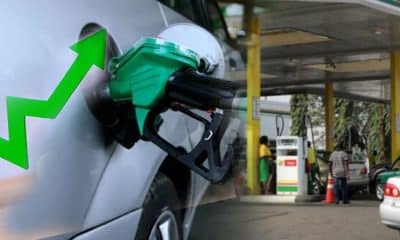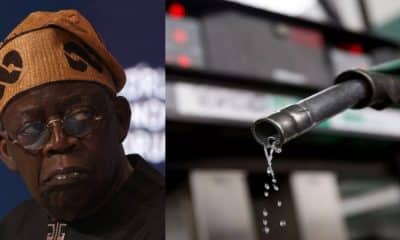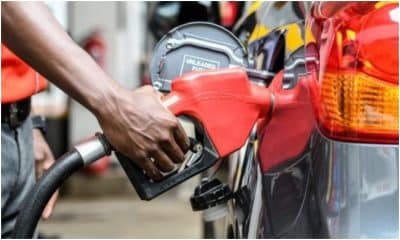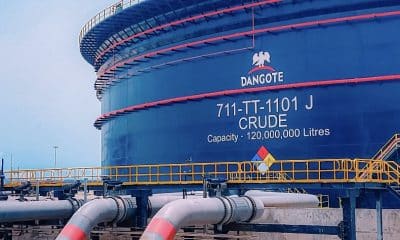Business
Oil Marketers Identify Major Cause Of Fuel Tanker Accidents, Seek Gov’t Intervention
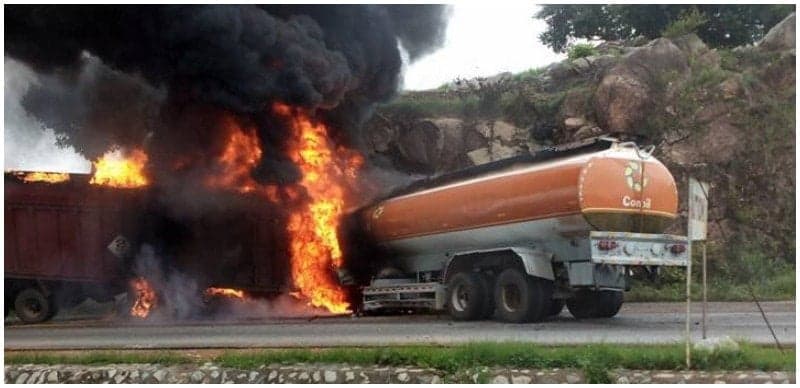
Oil Marketers have identified the major causes of fuel tanker accidents on Nigerian roads.
This is as the Executive Secretary of the Major Oil Marketers of Nigeria, Clement Isong, on Tuesday called on the Federal Government and stakeholders to invest in the sector, Naija News reports.
Speaking on behalf of the sector during an oil and gas summit in Lagos yesterday, Isong said most of the 40,000 petroleum trucks plying Nigerian roads have worked beyond their limit as most were purchased over 40 years ago.
According to him, most marketers suffer issues with funding and hence could not renew their trucks when due.
Delivering a lecture on ‘Opportunity areas and challenges of investments in the Petroleum Products Marketing & Bunkering sector’, Isong said the old trucks were no longer road-worthy and were the major causes of tanker accidents.
He stressed that the lack of funds to purchase new ones were some of the fallouts of low investments in the downstream sector.
Isong said: “Many of the trucks that are on our roads are about 40 years old. Those trucks should not be on the road because they are prone to accidents.”
He, however, believed that with the passage and implementation of the Petroleum Industry Act (PIA), investors could be willing to splash fortunes on the purchase of new trucks as part of the way forward for the downstream sector.
“Those are investments that haven’t been made in Nigeria for very many years because the business was not generating enough money. But by the time the PIA is implemented, then we will have better quality trucks – trucks that will not continue to cause accidents like those we currently see on the road,” he said.
According to Isong, the same situation of asset depreciation applied to product storage tanks. He noted that most of the tanks were about 50-60 years old, calling on the government to ensure that it drove investments into the sector to guarantee the safety of the depots.
“Although most of the tanks at the private depots are also old, those at the NNPC depots are even older.
“The 30, 000 filling stations in the country are also very old. Most of them are about 50-60 years old. Those stations need to be pulled down and rebuilt. Filling stations are supposed to be rebuilt every 10 to 15 years. The underground tanks also need to be changed because they are rusty and cause products to seep into the water being consumed,” he said, adding that new technologies needed to be deployed to improve the safety of lives and properties in the sector.
Isong admonished the government to put in place self-regulation that would pull investments into the downstream sector, and in turn improve safety performance in the sector.
He added: “When I say safety, I mean the entire health, safety, environment and quality of the depots across the country. And I’m not just talking about the private depots alone. So, there is so much investment that needs to be made to upgrade the filling stations in the country. But sometimes, the sector probably will need the regulator to accompany us to make sure that we do the things that we must do.”

